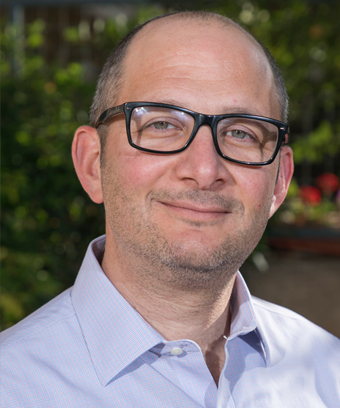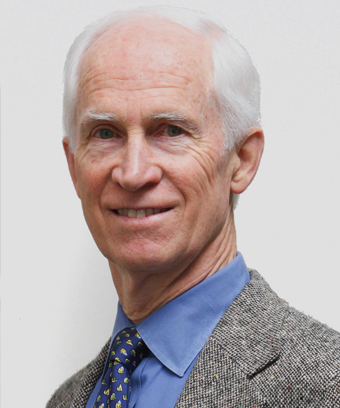The World in 2022
The world continues to be rocked by multiple, overlapping crises—environmental disasters, the COVID-19 pandemic, strident nationalism, nuclear brinkmanship, and an eroding liberal order that threatens democracy everywhere. As 2022 begins, IGCC experts from across the University of California share their candid—and at times sobering—reflections on the most important global trends to watch in 2022.

Eli Berman on Disinformation
In a moment of clarity, after lecture, I feel my demotion. It comes after teaching online, struggling to maintain eye contact, with a pang of nostalgia for the intimacy of teaching in person. In person I was a privileged communicator of truth and skeptical thinking. On zoom, my talking head competes with all the other windows: full of slickly marketed entertainment, news, and entertainment disguised as news, carefully selected by profit-seeking algorithms bent on marketing. No wonder I’m exhausted.
My demotion evokes the toxic sludge that’s coursing through our information ecosystem, journalist Maria Ressa’s phrase in her excellent Nobel Prize lecture. Insulting as my demotion is personally, I mention it because my colleagues and I are in the truth business, and we’re being demoted in general. We’re not under out-and-out attack, as are the investigative journalists. But the foundation of data we rely on is being eroded, and our ability to compete in public discourse—as it migrates to social media, and even into our classrooms—is also eroding.
Facts, collected, curated, and validated, are the foundation that our research builds on here at IGCC. Whether we’re studying climate degradation, political violence, great power competition, backsliding into authoritarianism, global health, or any other major topic, our carefully vetted and argued inferences and policy advice now compete with the toxic sludge of untruths—salient but false. The platforms competing for my students’ attention are willing accomplices in spreading that sludge, creating a competing imagined reality for them, untethered to facts. For that reason, understanding disinformation and informing the regulation of platforms should become a necessary part of our future research activity. Those platforms are mostly based here in California, but the threats they amplify are truly global concerns.
Eli Berman is IGCC’s research director for International Security. He leads IGCC research on Disinformation and is a professor of economics at UC San Diego.

Joshua Graff Zivin on Climate Change
As a scholar of both innovation and environmental challenges, I am profoundly worried about the future of human life on our planet. For decades, scientists have issued Cassandra-like warnings about the threats of climate change. Many social scientists, myself included, tended to be more tempered in their fears—folks will clamor for solutions when the pain becomes more tangible and then we will invent new and clever ways to address the problem.
It seems that several facts are conspiring against that vision becoming a reality. As many of us know from our classroom experience, teaching causal inference can be difficult, even to the brightest students. When action and consequence are separated by years, and the students vary tremendously in cultural and educational backgrounds, it is virtually impossible. When you add active disinformation campaigns and a general war on science into the mix, the result is more waiting and too little action.
Perhaps the silver lining in our collective foot-dragging, is that the consequences of climate change are becoming ever more present in the lives of everyday people. Floods, droughts, extreme temperature, and more tempestuous storms are the new reality, which does seem to have genuinely increased the appetite for action. How quickly we can act to change our behavior while delivering clever new technologies to manage the problem will determine how much we will suffer, as well as the distribution of that suffering. The recent response to COVID-19 offers some hope as well as new insight about the challenges to make this work.
Joshua Graff Zivin is IGCC research director for environmental and health studies. He is the Pacific Economic Cooperation chair in International Economic Relations at UC San Diego.

Emilie Hafner-Burton on the Future of Democracy
As a scholar of international relations, I worry about the future of democracy and what that means for peace and security. Not too long ago, our world was steadily becoming more peaceful and secure. But increasingly, the world is confronted with existential threats to personal, national, and global security.
One central threat is the attack on democracy. Many Western democracies, including the United States and many countries in Europe, face significant democratic backlash at home. Waves of populism coupled with nationalistic rhetoric cascade through many of the states that were once leaders in the movement to protect human rights and foster peaceful development. The historical forces of diplomacy in the name of human rights are in decline. And much of the world is now doubling down on the discourse of sovereignty and using seemingly democratic institutions—like elections—to do it.
The anti-human rights talk and actions that are accompanying today’s flavor of populism sweeping the West is troublesome. But it is its coexistence with another trend—the rise of autocracy—that is most deeply worrying. Rising now are countries that deny basic human rights and freedoms to their people. And they are doing so precisely at the time that so many Western powers are in, or contemplating, retreat from the global scene. These autocratic governments are both willing and able to fill the void the West is leaving behind as it turns inward, both within the human rights system and beyond it in ways we have not quite seen before. And they are using international institutions to push their agendas. Democracy—and the protections for human rights at its core—has waned in power within the global system as a result.
I have no full-blown solutions; only a few ideas that are surely partial, controversial, and problematic in their own right. The first is for scholars to embrace the impact evaluation revolution that has become so popular in the field of development. That means embracing criticism—based on facts—in a big and public way to identify and analyze success, but also bumps and failures on the path toward democracy. I’m a social scientist and we can use that science to build better policy. Second, we have to find creative ways to embrace the fact that, like it or not, power and sovereignty are central to the process of fostering genuine democracy and representation. Power and politics lead, human rights and freedoms follow. Third, efforts to promote human rights and freedoms could almost certainly be better “localized,” by which I mean vetted, translated, and supported by local actors and advocates. Imposing democracy from the outside-in is rarely a successful model. To flourish, democracy needs at some level to be homegrown. Fourth, it is possible to think more strategically about where to focus the limited resources of the democracy promotion system as a whole. In areas like foreign aid, international law, diplomacy and intervention, it is possible, and desirable, to set clearer priorities about where to focus efforts. Finally, focusing on the promotion of economic rights, not simply within the developing world, but within the “developed” countries that have played—and can once again play—a powerful role in the articulation and promotion of rights and democracy globally, is essential at this point. For democracy to have a chance of flourishing around the world, the West must not retreat from its own commitments to equality and freedom.
Emilie Hafner-Burton is an IGCC research director and leads The Future of Democracy initiative. She is a professor at the School of Global Policy and Strategy and the Department of Political Science at UC San Diego.

Courtenay Monroe on State Repression
As a scholar of state repression, I previously worried in this forum about the implications of the COVID-19 pandemic for government violence. Governments are frequently on solid legal ground to limit civil liberties, militarize, and violate individual rights when confronted with an emergency—and many did just that in response to COVID-19.
As we learn to live with COVID-19 as an endemic virus, we should recognize that many government encroachments on individual rights put into place in response to the pandemic will continue to linger. Many of these policies have differential effects, disproportionately hurting already marginalized individuals. Discriminatory policy implemented in the name of national security are likely to linger well into 2022 and well after COVID-19 no longer makes daily headlines.
But there is reason to be hopeful. We recently celebrated the 73rd anniversary of the United Nations General Assembly’s adoption of the Universal Declaration of Human Rights (UDHR), which proclaims that all human beings—regardless of their individual characteristics—are entitled to certain inalienable rights. The UDHR is not binding law; it is an aspirational document with no “teeth” to hold governments accountable for violence and discrimination.
And yet the Universal Declaration (the most translated document in the world!) charted the course for the development of more binding national and international institutions that do have measurable effects on human rights and human security. These institutions, while oft criticized as unenforceable, are best able to protect human rights when they are used as focal points for collective action against repressive governments—what Eleanor Roosevelt called “concerted citizen action to uphold [universal human rights].”
When people come together to remind leaders about aspiration and institutional commitments to human rights, governments sometimes fight back. But, sometimes, they give in. The combination of “weak” institutions and citizen demand is key for incremental improvements in human rights. Given recent waves of anti-government and anti-discrimination protest in democracies, I am hopeful that 2022 will see activists mobilizing around domestic and international promises to improve human rights—and continuing to make forward progress.
Courtenay Monroe is a member of the IGCC steering committee and an associate professor in the Department of Political Science at UC Merced.

Christina Cottiero on the Rise of Authoritarianism
I worry that increasingly sophisticated coordination of “transnational repression”—attempts to suppress citizens’ political expression abroad—through international institutions has made life more dangerous than ever for many pro-democracy activists and will retrench authoritarianism in several regions. The institutionalization of transnational repression through formal agreements and intergovernmental organizations is a late 20th-early 21st century innovation in the foreign policies of autocracies. Previously, autocrats cooperated more through bilateral and ad hoc channels to share intelligence, threaten and deny refuge to each other’s political opponents, and approve extradition requests or forced disappearances. As Tsourapas recently noted, cooperation on transnational repression now involves regional and global intergovernmental organizations. Regional organizations like the Shanghai Cooperation Organization and the Gulf Cooperation Council gained notoriety for maintaining “blacklists” of wanted activists and opponents, as well as legitimating members’ attempts to relabel non-violent political oppositions as terrorists. Autocrats have also manipulated international organizations with democratic members by, for example, abusing Interpol’s “red notices” to seek the arrests of dissidents. Recently, a UAE official accused of torture was elected as Interpol’s next president with more than 70 percent of votes from the Interpol General Assembly. This could be emblematic of a lack of willpower on the part of democratic states to adequately fund multilateral institutions and defend their original purposes against authoritarian influence.
I am most hopeful when I observe the determination of civilians leading protest movements to demand democratic governance and respect despite repression by state security forces and militias. The Sudanese Professionals Association (SPA) and the Tunisian National Dialogue Quartet, for example, successfully organized to demand democratic reforms, with the latter receiving the Nobel Prize in recognition of their efforts to democratize Tunisia. In the wake of Sudan’s most recent coup, the SPA has sustained street protests and shamed the United Nations for not taking a harsher stance against the military junta and complicit civilian leaders. Some still believe in the willpower of international organizations and powerful democracies to support pro-democracy activists, but resilient coalitions of national civil society organizations give me more cause for hope.
Christina Cottiero is a postdoctoral fellow at IGCC. She will join the University of Utah’s Department of Political Science in summer 2022.

Peter Cowhey on Technology
The adage is that if you work with a hammer everything looks like a nail. When asked what worries me, I reflexively focus on the weaknesses in the digital underpinnings of the emerging world economy created by mistaken policy choices.
In the early days of long-distance aviation, a daring pilot was determined to fly from the UK to Nepal. Unreliable aircraft, scarce airfields, and seat-of-the-pants navigation were all barriers to success. Equally significant was the difficulty in receiving permission to fly over, and land in, the countries along the route. This pilot had to enlist the British automobile club to obtain the necessary permissions. Over the following decades international conventions arose to grant presumptions of safe flyovers with regularized bureaucratic procedures to file approved flight plans. Standard operating procedures and safety metrics, as well as cross-border coordination, emerged for national air traffic control systems. Pilot training and cockpit procedures (such as safety checklists) evolved common templates. And competition for sales of aerospace equipment incentivized a steady pace of technological improvement and reliability.
This tale of aviation may seem irrelevant when digital technology has already created a technical set of standards (the Internet) for massive data global flows and plunged the costs of global communication to near zero. Yet, we are beginning to flounder in designing the future global digital infrastructure. That would be a terrible loss for global well-being. The next generation of digital applications can enable global monitoring of disease, pollution, ocean health, and conflict in previously unimaginable ways. Digital monitoring could allow the trade in carbon credits for forest protection to regain its lost credibility. An expanded digital infrastructure can also revolutionize the patterns of global production if customer data, design templates certified for security and safety, and software upgrades for “3D” printing can flow freely across borders. Many parts now traded physically would be supplied as services to local “print shops.” Customization of products to local needs would accelerate.
Sadly, barriers reminiscent of early aviation are popping up. The causes are understandable—privacy protection, cyber security, national data sovereignty—but the restrictions are similar to the walling off of national air space and the lack of common safety standards and designs for airports and air traffic control.
The design for a new digital infrastructure will require policy innovations. It should begin by acknowledging the right of nations to regulate but the obligation to do so in a way consistent with building a common digital infrastructure. Singapore and New Zealand have just signed a digital trade pact that outlines many of the obligations while leaving much of the practicalities to working groups of national regulators and technical experts, including international standards groups. It advances “mutual recognition”—an ability of one nation’s regulators to certify regulatory compliance that will presumptively be recognized by like-minded nations—as a flexible method of fostering common policy approaches. (Some issues, like freedom of speech on the Web, may remain unsettled.) And, just as in early aviation, we should invest in common global resources, such as open-source facilities for sharing public data from many countries. Finally, a global infrastructure requires expertise crossing every national border. The United States should invest in the training and networking of a new generation of digital specialists from every lower-income country. This will build the Internet back better by investing in the people who can make it thrive as a global project.
Peter Cowhey served as director of IGCC from 1999-2006. He is dean and Qualcomm chair emeritus of the School of Global Policy and Strategy at UC San Diego where he served as dean from 2002 to 2021.

Raphael Frankfurter on COVID-19 and Scientific Uncertainty
I am concerned about the long-term ramifications of how scientific uncertainty has been communicated to the American public throughout the COVID-19 pandemic. When an unprecedented epidemic like this occurs, little is immediately known about the epidemiological parameters of the virus, effective mitigation strategies, mortality, and the scale of the devastation that could ensue. As scientific knowledge is produced, iteratively, out of the messiness of a contingency like this, recommendations, directives, and “truths” about the epidemic will inevitably change. Masks or no masks? Booster or no booster? Schools opened or closed?
As things have become increasingly fraught in this country, those in positions of scientific authority have often not confronted head-on the shifts that have occurred in their knowledge and recommendations. No doubt, there’s a sense of fear among public health leaders about what might happen if “the public” becomes skeptical about directives given from high-up. But when that “public”—itself made up of diverse social groups and experiences—senses obvious contradictions in what “the experts” are saying—masks today, none tomorrow—people may also pick up on the inevitable fluidity of incomplete scientific knowledge. This is not a problem in itself. But it becomes a vicious—and frightening—cycle when skepticism towards expertise is used to justify experts’ doubling down on their own (uncertain) certainties.
We are often told that public “distrust” of scientific evidence comes from misinformation that emanates from individual leaders or circulates in certain social spaces. This is no doubt true in some cases. But it is also a convenient explanation for the social, behavioral, and political complexities we have faced through the pandemic, and puts the onus for this distrust on specific bad actors or ordinary people and their supposedly spontaneously arising untruths. But when trust in public health authority seems fragile, experts’ denying evident contradictions in their own messages, or the lived experiences of people making sense of the situation on their own terms, may be the worst strategy for health communication. (Similar dynamics unfolded during the 2014-2016 Ebola virus epidemic in West Africa, which I wrote about in The Atlantic.)
Given the challenges we face in the coming decades—especially climate change—it’s more important than ever that scientific knowledge—even imperfect scientific knowledge—be mobilized to direct collective action. My hope is that technical experts—virologists, modelers, epidemiologists, meteorologists—and policymakers who find themselves in the limelight begin to articulate scientific uncertainty with more transparency. This could be a matter of shifting the tenor from “everyone wear a mask now” to “people who are working very hard to understand this situation have learned new information, and here is why masking would help.” No great anthropological insight here, other than a maxim of ethnographic engagement, which is that it is always best to assume that your audience—in this case, Americans from extraordinarily diverse backgrounds and historical experiences grappling with the effects of the pandemic—is capable of complex thought and inclined towards critical thinking.
Raphael Frankfurter is an IGCC dissertation fellow and medical anthropologist at UC San Francisco.

Stephan Haggard on the Threat to Democracy in the United States
Because the question asks what terrifies me, we have to turn to issues that pose truly existential risks. Clearly, nuclear weapons fall into that category, but I am somewhat more sanguine about the logic of deterrence and our ability to manage nuclear threats. Climate change poses existential challenges but other IGCC experts will no doubt speak to them. Rather, I would choose the threat to democracy in the United States as existential, since it goes to the nature of the country we are.
Prior to the 2020 election and the events of January 6, it was possible to believe that the United States would bounce back from the political polarization of the late Trump years. After January 6, however, it became clear to me that even assault on the integrity of the electoral system—the bedrock of any democracy and its minimal defining element—would not generate a robust bipartisan response. Although fingers can be pointed at the political parties, the problem is clearly deeper: those who are most politically engaged are now living in parallel universes. Sadly, it is easier to mobilize resentment than it is to dial it back; that, precisely, is the source of my fear for the future of the republic.
Stephan Haggard leads IGCC research on the Rise of Authoritarian International Organizations and is a distinguished professor of political science at the School of Global Policy and Strategy at UC San Diego. He is the author with Robert Kaufman, of Backsliding: Democratic Regress in The Contemporary World.

Esteban Klor on Economic and Financial Collapse in the Middle East
The COVID-19 pandemic caused severe economic hardship to the entire world. Almost two years after it began, COVID-19 and its ramifications have had an especially devastating economic impact on most countries of the Levant region. Syria and Iraq entered the pandemic with already weak economies, which were decimated by over half a decade of violent internal conflicts. The pandemic made matters worse, weakening those countries’ economies even further. In the last two years, we have seen the collapse of the Lebanese economy, and substantial economic instability in Turkey and Jordan. Nowadays, the economies of these countries suffer from high inflation, the depreciation of their currencies, high unemployment rates, and weak expectations regarding their future. Inflation in Lebanon will likely surpass 200 percent in 2021 and the Lebanese lira will depreciate by around 90 percent. Turkey’s inflation is likely to be around 20 percent for the current year and the Turkish lira already lost half of its value. Meanwhile, the employment rate in Jordan hovers around 25 percent.
The combination of weak local economic conditions with worrying global economic trends delivers a grim picture regarding the prospects of these countries’ residents. Extreme weather conditions, labor shortages, and higher energy and transportation costs led to a substantial increase of food and energy prices worldwide. While developed nations have the means to subsidize the consumption of basic products, citizens of Levant countries already in crisis will be hit especially hard by these trends. The unprecedented socioeconomic crisis of these countries is likely to lead to a decrease in the living standards of all segments of society. The poverty rate in Syria increased from around 50-60 percent in 2019 to 90 percent in 2021. The estimated poverty rate in Lebanon doubled from around 40 percent in 2019 to over 80 percent in 2021. Jordan and Turkey have also suffered from substantial increases in their poverty rates since the onset of COVID-19. This affects not only a large share of their citizens, but also millions of Syrian refugees residing in these countries.
As a consequence of this crisis, millions of residents of the Levant region have been left with limited coping mechanisms, and face difficult choices on a daily basis. These include dealing with food insecurity and having none to limited access to health, education, and public utilities. International organizations and developed countries should make a real effort to mitigate the effects of the COVID-19-induced socioeconomic crisis on the poor populations of countries in the Levant. These interventions should be carried out through locally based non-governmental organizations. It is imperative that they occur in the immediate future. Otherwise, this winter we will witness another large wave of emigration of starving residents of Levant countries to the European Union seeking asylum and new opportunities.
Esteban Klor is an IGCC affiliate researcher and is the Rosita Herczeg professor of economics at the Hebrew University of Jerusalem.

David Lake on the U.S.-China Relationship
U.S.-China relations are rapidly deteriorating. Much commentary in the United States focuses on China’s expansion into the South China Sea, its expanding military programs, its human rights practices in Xinjiang and Hong Kong, and its barriers to market access. Chinese commentators nearly all agree that the United States is doing everything possible to prevent the rise of China and to maintain U.S. primacy, and thus conclude that Beijing must press against Washington in all the aforementioned areas. We are, unfortunately, in the early stages of a security dilemma in which each country interprets the other’s actions as hostile, whether or not this was the intent, and then responds with hostility. As each side reacts to the other, a spiral of conflict takes hold.
Power transitions are always fraught. Americans in general support international cooperation—the benefits are real, and nearly everyone agrees that cooperation is better than conflict. Yet, there will always be some fear in the United States with China as a rising power. Nationalism and pride are challenged. Low-skilled labor is displaced, especially in manufacturing jobs long held by white men. And, unfortunately, there is more than a measure of xenophobia and racism, with individuals holding anti-Asian prejudice supporting more aggressive policies toward China.
The real turning point for the United States, however, was “losing” the U.S. international business community as an advocate for cooperative relations with China. Wooed by the attractions of a billion increasingly prosperous consumers, but then repelled by China’s mercantilist practices, by 2010, many U.S. firms concluded that the economic opportunities in China were less beneficial than anticipated. President Trump’s trade war would not have been possible if the international business community had not been disillusioned by China’s restrictions on trade and investment. This alienation of its biggest supporters in the United States is on China. In seeking to pursue its own economic nationalist aims, it estranged the one forceful advocate of cooperation that counter-balanced the natural fears of a rising China. As a result, there is no constituency within the United States today for better relations with China. Perhaps the one thing both Republicans and Democrats agree on in this highly polarized era is the need to “get tough” on China.
For its part, China is justifiably proud of its accomplishments but remains somewhat contradictory in its foreign policy. It wants to be recognized as a global power co-equal to the United States. At the same time, it wants to continue to benefit from rules on trade and allowances for small developing countries written into existing international institutions. “We’re big and powerful,” China claims, “but we’re still poor and should not be expected to compete on equal terms with Western firms.” The world’s largest economy by some reckonings, China continues to act in some ways like a small country constrained by international market forces, whose actions have no impact on others, when in fact its actions have broad, systemic effects. Backed by its own nationalists, whether sincere or manufactured, China’s leaders demand both recognition and respect for its privileged position within the international order.
While analysts focus on strategic and military competition between the United States and China, and access to China’s market, my biggest worry is the presently embryonic but worrisome competition for third-country markets that will—unless managed carefully—turn into exclusive zones of economic domination. Historically, great power competitions have typically revolved around the pursuit of spheres of influence and ended in conflict and war. This was true of the imperial competitions carried out by Europeans prior to 1914, Imperial Japan’s attempt to build an Asian empire, Nazi Germany’s pursuit of lebensraum and a de facto empire in Eastern Europe, and of course the United States and Soviet Union’s division of Europe in the Cold War. In each of these cases, one state aimed to carve out an exclusive economic zone in which it would dominate trade and investment at the expense of its great power rivals. And in each case, war—hot or cold—was the result.
The United States and China today are on the same or at least a parallel course. The United States has already taken important steps towards greater conflict, most notably by seeking to ban its allies and friends from importing communications technology and equipment developed by Huawei. This is defended as protecting national security and intelligence, a claim some experts and allies dispute, but is and was intended as a shot-across-the-bow for Chinese industry. Other U.S. restrictions on trade and investment have been more narrowly targeted at China itself, but one can easily imagine U.S. rules being extended to third countries if relations deteriorate, creating an American-centric sphere while alienating those less inclined to join with Washington.
China is moving in the same direction even if it has not yet attempted to close off third-country markets to the United States. Through the Belt-and-Road Initiative (BRI), China is investing enormous sums abroad. As of February 2021, China has signed memorandums of understanding with 140 countries and invested roughly $4 trillion through the initiative. Most of the funding comes from China’s three government policy banks, large state-owned banks, and sovereign wealth funds, with 59 percent of the plan’s projects owned by government entities, 26 percent by private firms, and the remainder in public-private ventures. The largest recipients of BRI investments between 2005 and 2017 are Pakistan, Indonesia, Malaysia, Saudi Arabia, Ethiopia, Bangladesh, Iran, Kenya, Vietnam, and Egypt.
Many BRI investments are in politically or financially unstable countries with poor credit ratings. At present, approximately $369.5 billion in Chinese BRI investments are described as “troubled,” meaning either that the collateral value of the investment is below its liabilities or loans are not performing. To date, China has offset the risk inherent in site-specific investments in unstable countries by providing state-backed financing in one form or another; that is, the Chinese government is essentially ensuring investments against foreign risk. If the investments fail, the government will—or is expected to—cover the loss. The Chinese government, however, cannot be indifferent to the actions of host governments that affect these investments. Even if Beijing covers the loss, expropriation or default still transfers wealth from China to the host country. While China’s workers have been willing to forgo present consumption for greater growth in the future, how long they will be willing to wait to cover investments that have turned bad in foreign lands is unknown. Eventually, the government will have to act to protect these investments and ensure the loans are repaid. This will draw Beijing into the domestic politics of host countries to ensure that friendly regimes remain or come to power that will prioritize Chinese interests, especially the repayment of the huge outstanding debts. Again, one can easily imagine China insisting as a condition for new funds that its outstanding loans get priority over loans to Western institutions. To date, China has refused to participate in any of the international creditor “clubs” that aim to prevent such bilateral deals. As its interests and influence expand in these third countries, there will be an almost inevitable tendency to manipulate relations to Beijing’s advantage at the expense of the West, creating a Chinese sphere of influence similar to that being developed by the United States.
This tendency will be reinforced by the nature of high-tech competition between the United States and China. At present, China’s technological capabilities are behind those in the United States. To catch up, China is investing heavily in what it perceives as industries of the future. There are large economies of scale in many high-tech industries, and to compete effectively firms must expand production to move down their cost curves. As China’s fledgling industries attempt to compete with U.S. firms, in the early stages at least they will require government subsidies (already underway) or privileged access to third-country markets (where consumers will end up paying more than they should). It is, once again, a short step to imagine China using its economic leverage over other countries to negotiate deals that ensure preferential market access for Chinese firms and raise barriers to Western firms.
These are early trends by both Washington and Beijing but nonetheless worrisome. Washington and Beijing need to open a dialogue and keep third-country markets open to the products and investments of both. A superpower competition for exclusive economic zones abroad will almost certainly result in a cold or hot war. Economic competition on free and open markets should be encouraged, but political competition that seeks to close markets to the other power is extremely dangerous. Nothing would be more reassuring to Americans than a credible commitment by China to keep the world open to free and fair trade and investment. A similar commitment by the United States would reassure China that it does not seek to prevent its rise but welcomes free and fair economic competition.
David Lake is an IGCC affiliate researcher and author most recently of Why Statebuilding Didn’t Work in Afghanistan. He is the Jerri-Ann and Gary E. Jacobs professor of social sciences and distinguished professor of political science at UC San Diego.

Aila Matanock on International Involvement
In recent years, support for international involvement of various types has eroded, which can pose real problems. As outgoing administrator for the U.S. Agency for International Development (USAID) Mark Green noted, repeated efforts to cut aid in the past U.S. administration could have real consequences: “Less resources mean we can do less…the investments that we make, particularly health infrastructure investments, may not have immediate tangible payoffs, but they are an essential part of a long-term strategy.” While the COVID-19 pandemic may turn the tide on health spending, there are many forms of U.S. and foreign assistance that have been on the cutting block.
Reduced support for international involvement is worrisome. Domestic actors in countries facing conflict and fragile security institutions have often invited international involvement. In these settings, where citizens face daily hardship, and the international community worries about refugee crises, the spread of violence, and other transnational threats, governments at times make voluntary requests to the U.S. and others for assistance. In many of these instances, these governments want to sign mutually beneficial agreements with opposing groups, allowing them to end conflict and share power. International involvement can help to enforce these agreements and avoid situations where the government reneges on the terms and prevents the deal from being implemented.
International actors use different tools to incentivize governments to comply with these deals. For example, peacekeepers often help secure peace settlements, but even unarmed monitors working together with donors can do so. Relatively efficient and cheap, mechanisms like monitoring post-conflict elections with rebel parties, for example, can be useful.
Going forward, if the U.S., other countries, and global intergovernmental organizations cut their international involvement, these domestic actors could be left without this tool for striking deals that can improve stability, openness, and protections for civilians. There are certainly justifiable critiques to be made of some international involvement, especially when enacted under pressure or force. Moving toward more cooperative relationships—as well as perhaps more regional rather than North-South missions—can help overcome some of the problems. But international involvement has been valuable in many contexts and continuing to discount this outside assistance, even though its payoffs may not be immediate, can be dangerous.
Aila Matanock is a member of the IGCC steering committee and an associate professor of political science at UC Berkeley.

Jeannette Money on Migration
As of November 30, 2021, there were 7,910,268,391 individuals living on the planet. Even with the global pandemic, births outpace deaths by more than 2 to 1 so that the global population is projected to grow to between 9 and 10 billion by the end of the century. Inequality abounds, both within and between nations. The United Nations Human Development Program reports that 1.3 billion of these individuals live in multidimensional poverty, around half of whom are children. Twenty-three countries are currently at war, according to the Armed Conflict Location and Event Data Project. There are no comparable global measures of the impact of climate change, but the impacts are significant. These statistics suggest that more than 16 percent of the global population lives at risk of their lives.
Most of the poorest individuals will not move across international borders. The UN High Commissioner for Refugees estimates that there are 31 million refugees and asylum seekers in 2021 and an additional 48 million internally displaced persons. Individuals who are very poor usually do not have the resources to move very far and those displaced by conflict tend to seek the nearest location of safety, at least initially. But that leaves billions of individuals who do have at least some resources to move and who may well be harmed by government incompetence and/or corruption, lack of political voice, poor economic opportunity, and/or crime and violence, among other concerns. Many of these issues have been aggravated by the COVID-19 pandemic. Even prior to the current pandemic, a 2018 Gallup opinion poll suggested that some 750 million individuals would move to another country if they were able—15 percent of the global adult population.
Some of these individuals are already on the move, COVID-19 restrictions notwithstanding. Immigrant apprehensions on the U.S. southern border with Mexico are at a 20-year high. Deaths crossing the Mediterranean continue to mount and recent reports suggest the same in the English Channel. Migrants have served as a tool of the Belarus government against European Union economic sanctions. And migrant movement is not confined to the Global North. Millions of documented and undocumented migrants live and work in Thailand; at current count, 5.1 million Venezuelans have found refuge in neighboring countries in South America; Haitians fleeing natural and manmade disasters have sought shelter in Chile.
International migrants face pressures at home that push them to move but they do not spread uniformly across the globe. Political stability and economic development in countries near and far pull migrants in, especially when employment opportunities abound. But migrants are often met with indifference or outright hostility by at least a vocal minority. As a result, countries with state capacity are spending billions of dollars to fortify their borders to prevent entry. Humanitarian efforts are sometimes taken as a symbol of a slightly open door that expands rather than contracts flows. And the journeys are ever more risky, generating a multi-billion dollar business in human smuggling and trafficking. Because border and interior controls can never seal a country’s borders completely, a significant proportion of international migrants find themselves in a destination country without legal status, which leaves them vulnerable to exploitation and without protection of their human rights. It seems unlikely that these tensions will abate.
Although there are a number of global treaties and compacts outlining the rights of migrants, national sovereignty still remains the rule on migrant entry and treatment, an international norm that continues to be jealously guarded by countries around the globe. Nonetheless, labor market reforms represent one avenue for both protecting migrant rights and reducing undocumented migration. The United States, the top destination for migrants according to Gallup, counts almost one-quarter of its foreign-born population as undocumented. Lax controls over employers facilitate the employment of undocumented migrants and, in many cases, result in low wages and poor workplace conditions. Improved regulation of labor markets would provide employment opportunities that could attract local as well as international workers and ensure that wages and working conditions improve for both categories of workers.
We cannot afford to think about resolving a specific migration crisis. We need to devise solutions that eliminate the underlying structural determinants of migration. In the absence of global cooperation, it is still possible to act unilaterally—to generate employment that attracts, as well as protects, both migrant and local workers.
Jeannette Money is a member of the IGCC steering committee and professor of political science at UC Davis.

T.J. Pempel on Threats to U.S. Democracy
What terrifies me most is the accelerating erosion of American democracy. Although Donald Trump played a starring role in this decline, the tragic drama has been developing over the past two decades. Since Trump’s electoral defeat, the threat has increased. The effects of this peril will ripple well beyond America’s shores, undermining the ability of the United States to continue to play a positive role in global affairs.
The core driver of this danger is a radicalized Republican Party. Power grabs have replaced policy successes. Thus, even before Trump, Senate Majority leader Mitch McConnell engineered a default on the national debt, froze roughly 100 Obama judicial nominations, and denied hearings for Obama’s nominee for the Supreme Court fully eight months before the 2016 election, but then forced through a Republican nominee only one month prior to the election of 2020. Ideologically, the party has increasingly rejected expertise, scientific evidence, social diversity, and agreed-upon realities in favor of “alternative facts,” conspiracy theories, cultural wedge issues, white nationalism, protectionism, and xenophobia. A loyal right-wing propaganda “news” network promotes its falsity-filled ideas 24/7. Trump and his administration represented the full-throated manifestation of what had previously been more elusive power grabs, subtle innuendoes, and dog whistles.
In office, Trump lied consistently, disdained diversity, embraced foreign dictators, winked at far-right militias, scorned health professionals, and incited armed insurrections against mask mandates in Democratic-led states. All proved but a prelude to his refusal to accept the legitimacy of his defeat in the 2020 presidential elections. Instead, he demanded that Republican officials overturn certified results in multiple states and then, with the January 6 insurrection, in Congress.
Rather than repudiating Trump’s “big lie” about the stolen election, the party rejected a bipartisan investigation of January 6 as hundreds of Republican officials lined up to enshrine him as their party’s leader. Authoritarian moves are now rampant with state and local level Republicans enacting a bevy of policies radically gerrymandering electoral districts, suppressing ballot access, stripping nonpartisan election administrators of their role in ensuring electoral fairness, and enabling partisan loyalists to discard unfavorable results in future elections.
Such actions bolster the likelihood that Republicans will retake one or both houses of Congress in 2022 and that they will use that control to deny President Biden any policy “wins,” domestic or foreign. A logical culmination would be Trump as the party’s nominee in 2024. If elected, he and his party will be empowered to dismantle any democratic barriers that remain. Such a disaster would be difficult to reverse domestically while making it less likely that the rest of the world would follow any U.S. lead militarily, economically, or culturally.
Is the situation remediable? With the American court system dominated by Republican judges and the filibuster blocking voting rights legislation, it is hard to be optimistic about any alternative short of a massive voter awakening to the dangers faced by the country. Yet a substantial portion of the American public has consistently shown its willingness to tolerate any authoritarianism that promises an antidote to the unwanted changes they fear. The only thing that gives me hope is Yogi Berra’s vaunted admonition: “It’s tough to make predictions, especially about the future.”
T.J. Pempel is chair of the IGCC Steering Committee and Jack M. Forcey professor of political science at UC Berkeley.

Sevin Gulfer Sagnic on the Weaponization of Migration
One of my biggest concerns for 2022 is the use and the escalation of “push forwards” in political disputes rooted in 2021. “Push forward”—pushing refugees and migrants to another country’s territory, or the weaponization of migration in diplomacy—has been one of the most significant migration issues of 2021. After Turkey pushed refugees from its territory to the Greek border, negotiations between Turkey and the European Union continued with an agenda to stop the Turkish government from engaging in another push forward attempt. However, the Turkish government has not changed its policy yet, and declared that it would not stop migrants trying to leave Turkey after pandemic-related measures were removed. In a similar move in May 2021, during a political dispute with Spain, Morocco sent migrants and refugees to the Spanish territory, Ceuta, to create pressure on the Spanish government. The conflict has de-escalated, but Morocco continues to keep its refugee card in hand. An escalation in the weaponization of migration as a tool in diplomacy was Belarus’s dangerous game of encouraging refugees and migrants from Iraq and Afghanistan to go to Belarus to push them to the European Union borders. While steps are now being taken to mitigate the situation, the terror caused by this policy proved its power as a diplomatic tool and added it to the toolbox of other undemocratic regimes. It may be possible to resolve individual conflicts relatively easily; it will take much more to remove this tool from the policy toolbox available to be used in future conflicts.
Sevin Gulfer Sagnic is an IGCC dissertation fellow and a doctoral candidate in the Department of Sociology at UC San Diego.

Etel Solingen on Risks to Global Supply Chains
I can think of several issues that are quite worrisome in the area of nuclear weapons, as I mentioned in a previous IGCC collection. Here I concentrate on another burning concern: rising environmental, pandemic, and geopolitical risks to global supply chains (GSC). When I started to research GSCs in 2015, my main focus was their impact on the future of U.S.-China relations and cooperation in East Asia. GSCs had connected East Asian and Pacific economies more deeply than ever before and in more intricate patterns, which enabled states to transcend armed hostilities and focus on absolute—rather than relative—gains from GSC participation. Recent geopolitical shocks disrupted that pattern. In a volume resulting from a collaboration with IGCC, we addressed the relationship between potential decline in economic interdependence via GSCs and security flashpoints in that region.
But the problem is even more worrisome. Environmental and pandemic shocks have compounded geopolitical risks to GSCs. Because we are at an inflection point regarding all three risks, it is impossible to predict how impregnable GSCs are to those three major risks. Not only do risks fuel unfortunate synergies across them, they also exacerbate other risks to GSCs, such as cyber-attacks.
Along with others, I explored some of the linkages across these risks in the Third Global Value Chain Development Report 2021, published by a consortium of international economic institutions. We find that, although the sources of each of those risks are varied, GSCs can exacerbate them. At the same time, GSCs can also help mitigate those risks through various means. But that requires dependable outward-oriented political-economy strategies that are more environmentally sustainable, sensitive to distributional considerations and labor protections, committed to stronger multilateral institutions and peaceful exchange, and compliant with nondiscrimination, reciprocity, transparency, and market-oriented policies.
Unfortunately, that’s not where we are in the world now. Lingering inward-oriented protectionist populism in many countries continues to fuel environmental, pandemic, and geopolitical risks.
Etel Solingen is an IGCC affiliate researcher and distinguished professor and the Thomas T. and Elizabeth C. Tierney chair in Peace and Conflict Studies at UC Irvine.

Frank Wyer on Proxy Wars Between the U.S. and China
One of the most damaging side-effects of great power competition is the transformation of civil conflicts into proxy wars between rival powers. During the Cold War, the U.S. and Soviet Union exacerbated civil wars by funneling arms and equipment to armed groups, from the Contras in Nicaragua to the Mujahideen in Afghanistan. While proxy conflicts diminished in number with the end of the Cold War, they did not disappear entirely. In Yemen for instance, the U.S. has provided arms and intelligence to Saudi Arabia, which is waging war on behalf of the Hadi government against the Iran-backed Houthi rebels.
If competition between the U.S. and China follows a similar pattern, the heightening of tensions between the two countries may exacerbate civil conflicts around the world. The outbreak of civil war in Ethiopia in 2020, and the widening of conflict in Myanmar following the military coup in 2021, provide two potential battlegrounds. China has expressed firm support for Abiy Ahmed’s government in its war against Tigrayan separatists, while the U.S. has condemned the regime’s human rights abuses and imposed sanctions. Similarly, even as the U.S. has imposed severe sanctions against Myanmar’s military government, China has provided tacit support to the junta by blocking UN resolutions condemning the recent coup. While their actions so far fall short of the Cold War modus operandi, it is not difficult to imagine that the U.S. and China’s opposing positions on these wars could lead to more direct confrontation in the future.
Yet the return of Cold War style proxy wars is not inevitable. Despite their political and economic rivalry, the U.S. and China can prevent rising tensions from spilling over into these civil conflicts. In the U.S. in particular, there are some promising signs that the appetite for involvement in foreign wars has waned. In the case of Yemen, the Biden administration announced in February that the U.S. would no longer support Saudi Arabia’s offensive operations, and in November, a bipartisan group of legislators attempted (unsuccessfully) to block a $650 million arms deal with Saudi Arabia over its continued involvement in the war. So far, the U.S. has emphasized diplomatic and economic pressure in its approach to the conflicts in Ethiopia and Myanmar.
Perhaps norms of non-intervention have grown stronger in the aftermath of the Cold War’s devastation. Or perhaps the U.S. has learned practical lessons about the unintended consequences of intervention after members of the Mujahideen it armed against the Soviets formed the Taliban and became its most formidable enemy in Afghanistan. Whether they are guided by norms or pragmatism, policymakers in the U.S. should continue to support diplomatic solutions to civil wars and resist the impulse to view them as opportunities to confront competitors like China.
Frank Wyer is an IGCC dissertation fellow and postdoctoral candidate in political science at UC Los Angeles.

Global Policy At A Glance
Global Policy At A Glance is IGCC’s blog, which brings research from our network of scholars to engaged audiences outside of academia.
Read More